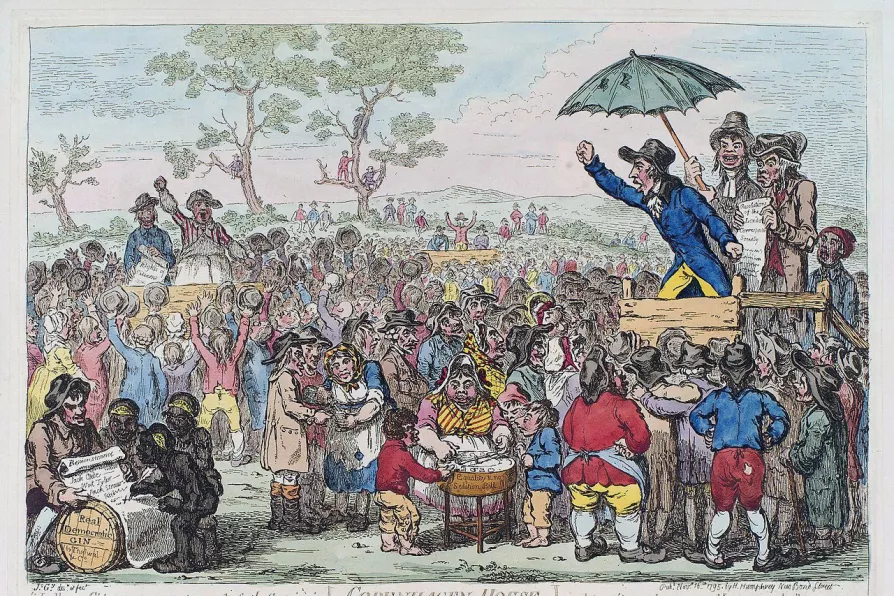The US assault on Venezuela is brazen and unlawful – yet our PM claims uncertainty. By refusing to confront Trump’s naked imperialism, Starmer abandons international law, mortgages British policy to Washington, and clears the ground for war, argues ANDREW MURRAY

 SKULDUGGERY: LCS speakers address the crowds at the now-demolished Copenhagen Fields, Islington, 1795
SKULDUGGERY: LCS speakers address the crowds at the now-demolished Copenhagen Fields, Islington, 1795
ATTEMPTING to neutralise dissidents by accusing them of serious crimes is a trick governments never get tired of.
Older readers will remember (though they may wonder if they dreamed such a bizarre episode) the time that Peter Hain was tried at the Old Bailey for robbing a bank. Now a respectable Labour peer, but then a radical Young Liberal and leading anti-apartheid campaigner, Hain was framed in 1976 by agents working for the South African government with the approval of the British secret police. He was only acquitted on a majority verdict. Even during a period of strange political trials, that one was sufficiently farcical to stand out.
At least the crime Hain was falsely accused of actually occurred. Unlike The Pop-Gun Plot...

The heroism of the jury who defied prison and starvation conditions secured the absolute right of juries to deliver verdicts based on conscience — a convention which is now under attack, writes MAT COWARD

‘Honest’ Tom Wharton’s 1682 drunken rampage through St Mary’s church haunted his political career, but his satirical song Lillibullero helped topple Catholic James II during the Glorious Revolution, writes MAT COWARD

Edinburgh can take great pride in an episode of its history where a murderous captain of the city guard was brought to justice by a righteous crowd — and nobody snitched to Westminster in the aftermath, writes MAT COWARD











